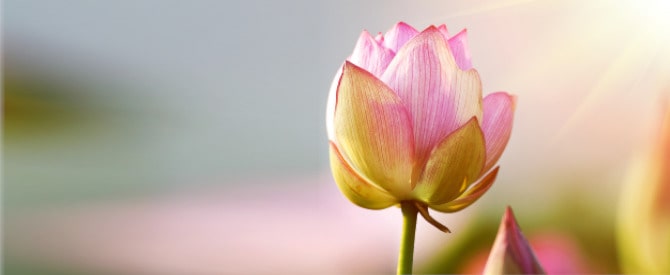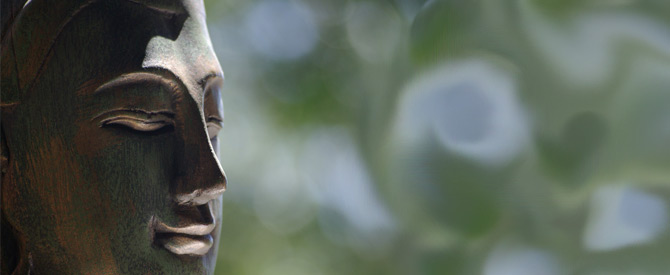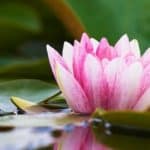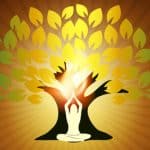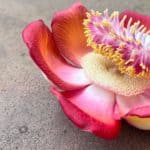We are divine spirit expressing in human form. When we put in efforts to grow and realize our true nature, we are described as being “on the path” or on a “spiritual journey.”
There are three things that we must give up to grow on the spiritual path—the ego, the sense of being the doer of our actions, and craving the results of our actions. These three things prevent us from rediscovering who we really are.
Give up the ego to grow on the spiritual path
To grow on the spiritual path, we must give up the ego and realise our innate divine nature which is spirit or the Self.
The ego is commonly thought of as having an overly high opinion of oneself. From the standpoint of spirituality however, the ego has a different meaning. Vedanta explains that the ego is a notion of separateness and individuality. It’s an illusion—and not who we really are.
The ego limits your identity to what you look like physically and the characteristics, strengths, and weaknesses of your emotional and intellectual makeup. It tells you that you are what you possess materially, the roles that you play every day, and convinces you that you are different and separate from others.
Like a shadow that exists only in the presence of an actual object or living being, the ego, “I” cannot exist alone. It’s always connected to something else. For instance, one may say, I am tall, I am a man/woman, I like grapes, I am feeling happy today, and so on. The ego “I” is always changing based on the identity and context it is in.
Our essential or real Self exists independent of all things and beings. It is simply “I am.” No other description follows it. It is a changeless, eternal presence that lies unseen behind the ego. It gives life and intelligence to the ego.
How can we know that the ego is an illusion, a mere notion in our minds?
Let’s take Sandra, a 32-year-old mother of two children, wife of Brad, and practising lawyer at Main Street Solicitors. Let’s suppose Sandra got into a serious traffic accident and became unconscious. When she woke up in the hospital, she had lost all her memory. She had no clue who she was, who her family was, where she lived, and that she was a lawyer.
Although she lost memory of her ego identity as Sandra, she didn’t cease to exist. The unchanging inner “I”, the real identity beneath the roles and identities still existed.
Sandra, without even knowing her name, could still identify with her real Self and say “I”. To regain her ego identity, she would have to remember or re-learn everything. Her old identity would be superimposed on her real identity.
Our goal is to identify with the Self as constantly and completely as we now identify with the ego, that gives us our human personality. We are unable to sustain an inner awareness of the Self for any significant period of time because of the impurities in the mind. These impurities express as negative thoughts, emotions, and habits.
To overcome the impurities in the mind and grow on the spiritual path we can adopt disciplines such as daily self-reflection, spiritual study and contemplation, meditation and cultivating the noble virtues of the heart.
These practices will purify the mind and enable us to grow in the conviction, “I am not this personality. I am the pure Self, the silent witness within.”
Drop your sense of being the doer to grow on the spiritual path
When we identify with the ego, we think ourselves to be the doer of the actions that we perform. To grow on the spiritual path, we must practice dropping this sense of doership which affirms, “I did it.”
The ego itself isn’t real; so how can it claim to be the doer of the actions? It is spirit or the Self that makes the ego appear to have a conscious, independent existence. Spirit alone gives the ego all its abilities.
Our physical and mental abilities such as being able to see, hear, speak, walk, think, and feel are enabled by spirit. These are our gifts. Spirit makes it possible for us to perform all our actions. It is this divine Self alone that inspires us to do what is good and right.
To grow on the spiritual path, we can drop our sense of doership and see ourselves as instruments of the divine in the service of others. Doing this will dilute the ego, eliminate the sense of doership, cultivate humility and promote our peace of mind.
Detach from craving for results to grow on the spiritual path
All actions reap results. Whenever we perform an action with ego and a sense of doership, there naturally arises a desire to want a result that is favorable to us.
Results leave impressions in the mind that create tendencies to either repeat the same actions (if the results were favorable) or avoid them (if the results were unfavorable). These tendencies are hidden in our unconscious and prompt us to think, feel, and act in the same way again and again (with ego, doership and craving for particular results). This is a hard cycle to break.
If we want to grow on the spiritual path, we must detach from craving for the results of our actions.
Even from the standpoint of our everyday life and work, detaching from the desire for particular results is something to aspire for. This is because craving for the results gives rise to fear, anxiety or worry about the possibility of not getting what we hope for. These concerns distract us from the work at hand and decrease our efficiency.
What is the solution to our tendency to crave favourable results? We can start by reflecting on the fact that results are uncertain, they come in the future, and are dependent on many factors out of our control. For example, you may follow a recipe as best as you can, but if the oven isn’t functioning properly and doesn’t heat up to the required temperature, it will affect the outcome of your dish.
Since we can’t control future results, why peg our happiness on them? It’s better to place our attention on the task at present and hold the right attitude while working.
Working in this way quiets the chattering mind. When the mind is calm, a spring of joy that is within flows out and is channeled into the work. You may have experienced the feeling of being so happily immersed in your work that you became unaware of time and the other things that normally occupy your mind.
Instead of waiting to be happy later when the results come, we can choose to be happy while doing the work. Then whether we get what we wanted or not, we will already be happy.
Detaching from craving for the results is a sure way to grow in your spiritual path.*
The greatest reward and goal on the spiritual path
Surrendering the ego, our claim on being the doer and our craving for particular results brings great inner rewards. We forge a deeper connection to, and faith in the divine. We break down our pride and gain humility. We learn how to be happy in the now and are better able to remain balanced in good and bad circumstances. There is a growing sense of peace and happiness in life.
As we grow on the spiritual path in this way, we gain inner purity that eventually leads us to the realisation of our own divine spiritual essence in meditation. This is the real reward and goal of life.
*Find out more about performing your actions in the right attitude in chapter 9 of So you’re a spiritual being—now what?
Like this post? Sign up for the free fortnightly Spiritual Solutions Newsletter and receive the latest articles, news and updates in your email inbox!


